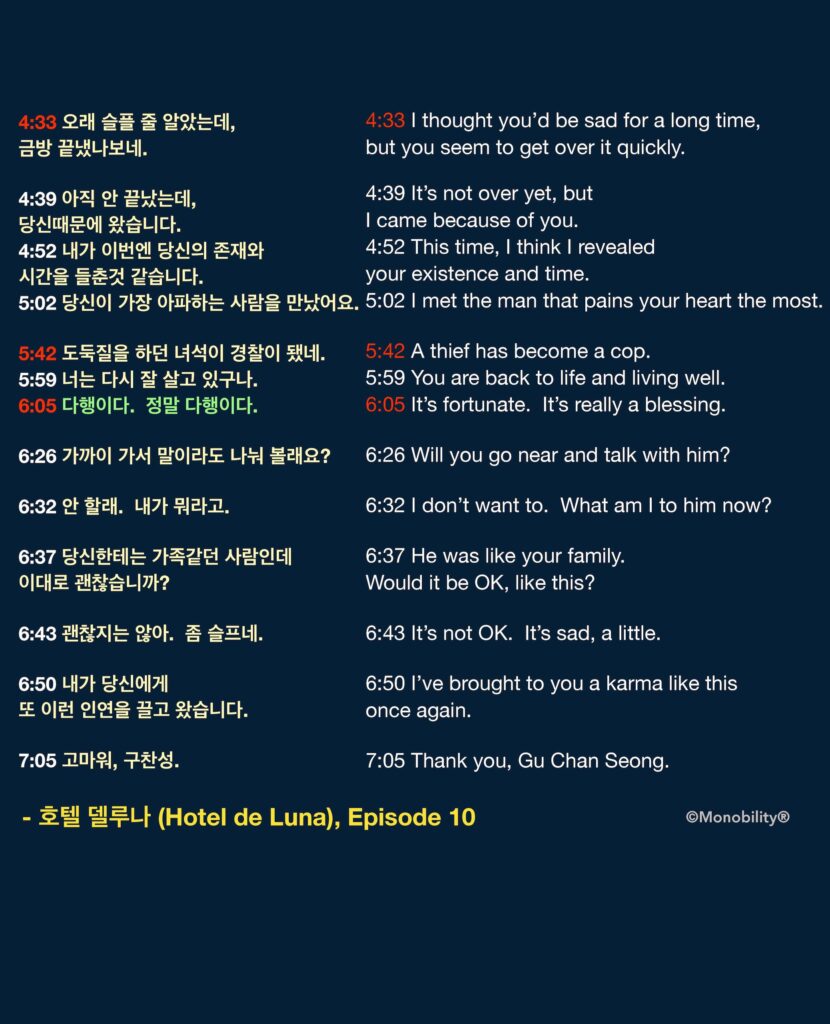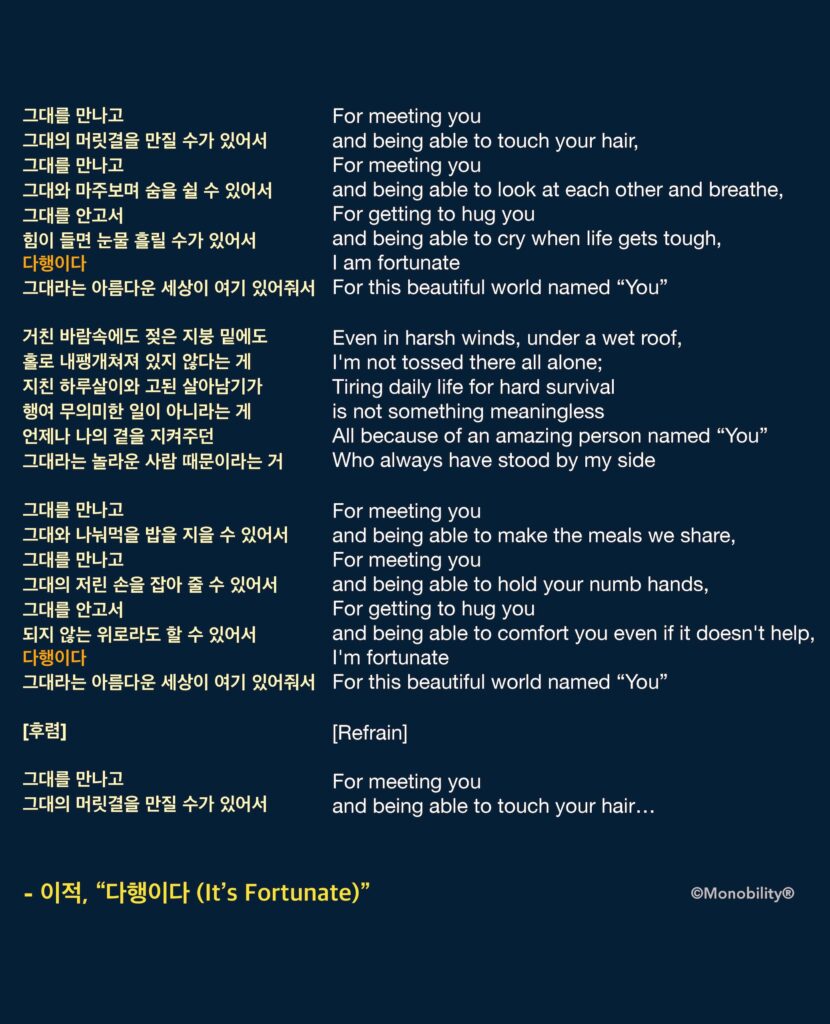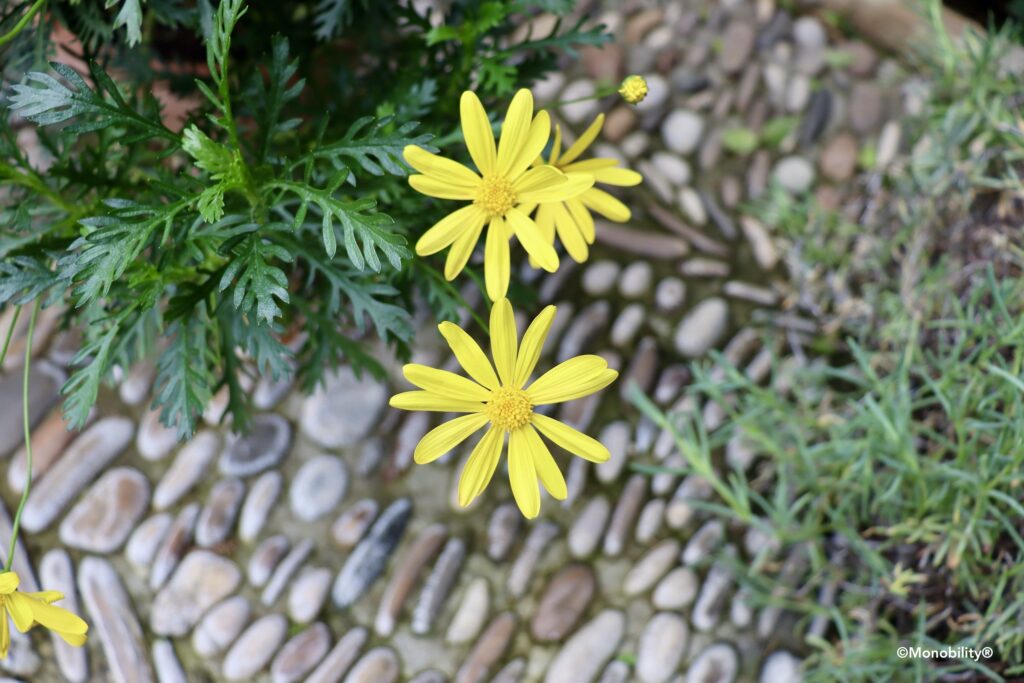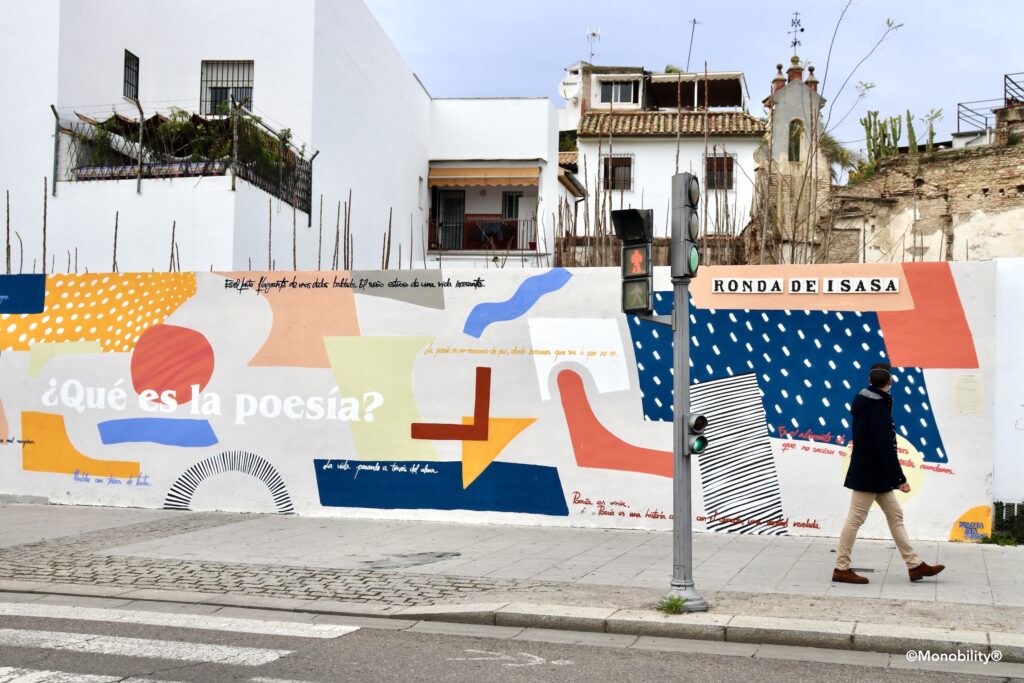Koreans say “다행이다” when things turn out to be better than expected in tough situations or in unfortunate accidents. It is conceptually equivalent to “It’s fortunate,” “Thank God,” “Thank goodness!,” “It’s a blessing,” or “a silver lining around the clouds.” It is often expressed emphatically with additional adverbs:
정말 다행이야 = Thank God, (you’re) really fortunate.
천만 다행이다 = “Wheeew, that was close!” (“천만” literally means 1000 and 10,000 times.)
불행 중 다행이지 = At least it’s a good thing among all the misfortunes. “Every cloud has a silver lining.”
In Hotel de Luna (2019), a 1300 year-old ghost 장만월 sees her former best friend reincarnated as a human in the present life, after being killed by their enemies partly because of her mistake in their past life. Seeing him alive and well with his new life, she sheds tears of joy despite her painful memories, whereas she herself stayed as a ghost for so long, destined to atone for her sins to be able to pass on to the afterlife. It’s that moment when she says “다행이다. 정말 다행이다.” for him, standing a few steps away:

Usually “다행이다” is spoken with an expression of relief, a sigh, a deep breath. Listen to a top singer 이적 sing his own song “다행이다,” and watch how he vocalizes that particular phrase “다행이다.”

Attentive to such details, creative in their expressions, professional singers are definitely different from amateurs, aren’t they? They are artists of words and sounds. And even if you don’t understand one word of Korean, you could easily tell they are professional musicians, wearing shorts and T-shirts as street performers in disguise.^^
Follow us on Facebook for much more:



